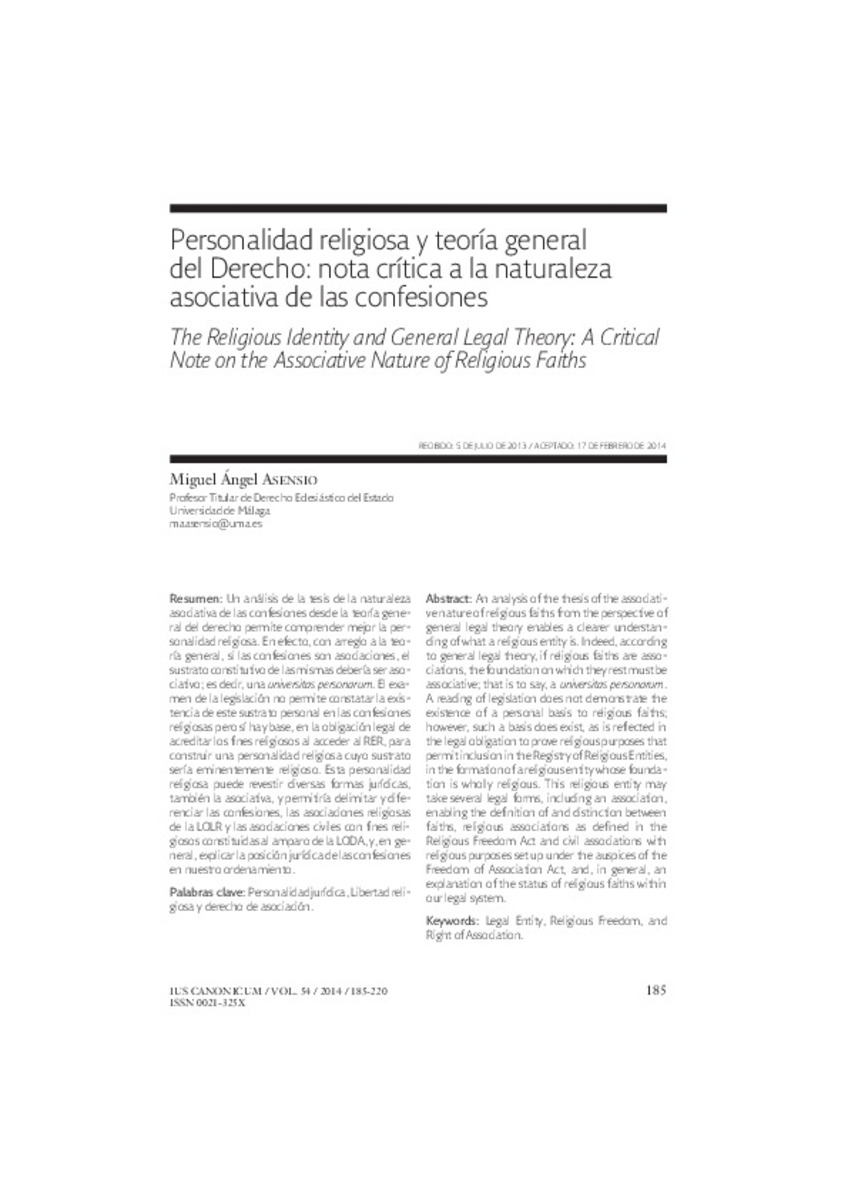Personalidad religiosa y teoría general del Derecho: nota crítica a la naturaleza asociativa de las confesiones
Other Titles:
The Religious Identity and General Legal Theory: A Critical Note on the Associative Nature of Religious Faiths
Keywords:
Libertad religiosa y derecho de asociación
Personalidad jurídica
Publisher:
Servicio de Publicaciones de la Universidad de Navarra
Citation:
Asensio, M.A. (2014) Personalidad religiosa y teoría general del Derecho: nota crítica a la naturaleza asociativa de las confesiones. Ius Canonicum, 54 (107), 185-220
Statistics and impact
0 citas en

0 citas en

Items in Dadun are protected by copyright, with all rights reserved, unless otherwise indicated.







